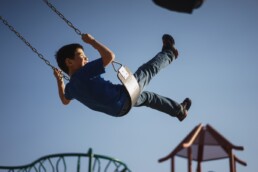LEGAL
by attorney at law Patrick Burkhard
Video recordings of football hooligans in criminal proceedings

When it became known a few years ago that a state doping system had existed in Russia for a long time, various doping proceedings were opened against Russian athletes and old proceedings were reopened. This was also the case with Russian triathlete A: in 2017, the World Triathlon Federation (WT) opened proceedings against A based on three doping samples from 2014 and 2015, which were allegedly positive for the banned substance trimetazidine. Shortly afterwards, WT discontinued the inconclusive proceedings. The proceedings were then reopened in 2021 (when new evidence became available), the suspicion of doping was confirmed and A was banned from cycling for four years.
The sanction was not based on authentic or original evidence, but on expert reports, email correspondence between the Moscow laboratory and a member of the Russian authorities and on copies of the data from the Moscow laboratory at the time, which had come into the hands of the anti-doping authorities. This data is said to have shown sufficiently (in the case of proof of doping, only a so-called „comfortable satisfaction“ is required as a measure of proof, i.e. no certain proof) that the Moscow laboratory, which carried out the analysis of the three allegedly positive samples from A, reported these samples as negative on the instructions of a Russian state official and subsequently destroyed them. The Anti-Doping Division of the International Court of Arbitration for Sport in Lausanne (CAS) and the CAS Appeals Court confirmed the four-year ban.
This presented A with an almost impossible task: she had to prove her innocence without her doping samples being present (they were destroyed), more than seven years after the samples had been taken and after she had already been told twice that her samples were negative (the first time after the Moscow laboratory had analysed them, the second time when the proceedings were dropped by WT). A had no chance. Nevertheless, the Federal Court did not see any violation of her right to evidence. The absence of the samples could not be blamed on the lower court and A could have proved „the circumstances and connections regarding the Moscow laboratory’s handling of the urine samples in question“ (BGer 4A_488/2023, judgement of 23 January 2024).
It is also problematic that the content of a CAS arbitration decision can hardly be reviewed at all before the Federal Supreme Court. It is mainly procedural errors and violations of public policy that can be criticised. Human rights violations, on the other hand, cannot be invoked. In the case of South African runner Caster Semenya, the European Court of Human Rights (ECtHR) found that this limited cognition of the Federal Supreme Court means that athletes have no effective legal remedy to complain about a violation of the European Convention on Human Rights (ECHR). This fact alone constitutes a violation of the ECHR. The Federal Supreme Court did not address this argument by A, who also complained of a violation of the ECHR (right to a fair trial), stating that the Semenya judgement of the ECtHR was not yet legally binding. Everyone can decide for themselves whether this justification does justice to a judgement by the highest court…







